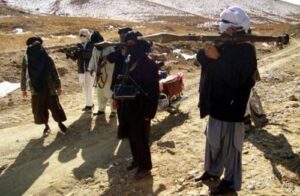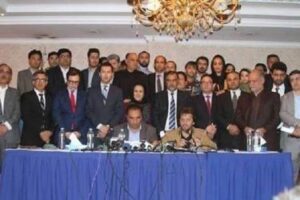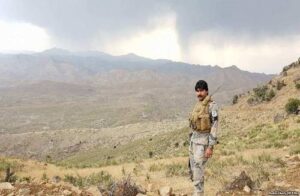KABUL (SW): Like the rest of the decade, Afghan citizens have gone through hardships in 2015 as well and braced the new year with a mixture of fears and hope.
The hardships has had unpleasant memories in three main areas mainly social, economic and security. The fall of several districts and the brief collapse of Kunduz City to the militants, other conflicts and deadly operations, which have claimed the lives of thousands of Afghan National Security Forces and Police personnel have been the reasons why many citizens have lost trust in the government in terms of ensuring security in the country.
Surge of Deash in the eastern part of the country, raging violence in the northern and southern provinces, kidnapping of the passengers at the Herat-Kabul highway, and the beheading of passengers caused a public outrage.
The mass demonstration on 11, Nov, 2015 near Arg (Presidential Palace), in one hand brought hopes to civil and social movements and on the other hand clearly exposed the gap between government and people. Besides security challenges, the crisis of unemployment and immigration of the youth abroad affected the economic circle in the country.
Demonstrations in various provinces in the country against employment policies of the government, led to the establishment of unemployment campaign in the capital, queuing long for gaining a passport for leaving the country, put the government in a difficult situation.
Looking on the bright sight of 2015, there has been good news and the most notable ones, holding RECCA summit and finalization of TAPI agreement which made the citizens hopeful for an improved economic situation in the country. It seems that all these ups and downs have made the citizens both concerned and hopeful for the future.
The recent study carried out by the Asia Foundation, suggests that security situation across the country is 42.7 percent and the level of unemployment is 31.2 percent. The study also suggests that 74.9 percent of the citizens are optimistic, and this statistics covers all rural areas and the cities in the country, but citizens in the rural areas are less optimistic compared to those in the cities.
Saifuddin Saihoon, an economic expert and university lecturer, believed that the wide corruption in the government’s institutions has led to disparity. He said that government has $ 7 million budget out of which $ 5 million is expenditure, which is not enough for around 30 million populations of the country.
He added that the only way to an improved economic situation is to develop an agriculture mechanism and that the government should fully be focused in 2016 on agriculture.
Military experts believed that 2016 will be a tougher year than last year as the Taliban and Daesh with the beginning of the summer, could pose more threat to the government.
Jawed Kohistani, a military expert, in an exclusive interview with SalamWatandar, said that if the current security challenges remain unsolved, 2016 would too be a bloody year for security forces. He said that lack of military equipment especially lack of enough air power is the major problems for security forces.
He believed that the government could solve this very problem by asking regional countries to supply them with such equipment.
ENDS





